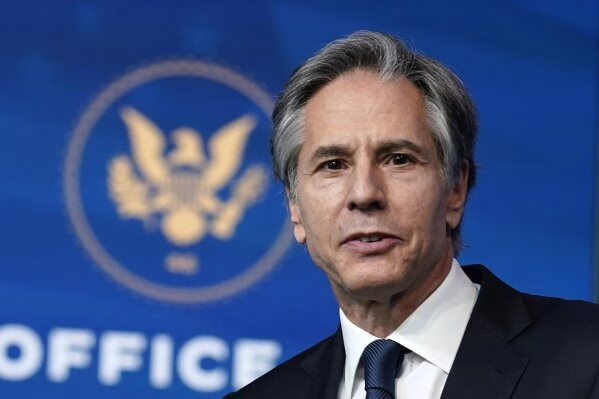US Could Engage Directly with Hamas to Release American Hostages

- White House re-evaluates deal after hostage families’ meeting
- IDF readies for potential Hezbollah escalation.
- Netanyahu’s Corridor stance strains ties with Egypt.
- Egypt accuses Netanyahu of undermining ceasefire talks.
The US is exploring the possibility of negotiating directly with Hamas to secure the release of four American hostages still being held in Gaza.
Family members of the hostages have been urging the US to break with Israel and pursue a separate deal. Details on how such negotiations would unfold and what the US might offer in return remain unclear, but any direct talks could impact the stability of Benjamin Netanyahu’s government.
An Israeli official has indicated that the US has begun considering a unilateral approach to the hostage situation. The hostages believed to be alive include Eden Alexander, 20, Sagui Dekel Chen, 35, Omer Neutra, 22, and 74-year-old Keith Siegel.
US Secretary of State Antony Blinken reported that nearly 90 percent of ceasefire terms have been agreed upon. Tensions have been rising between the White House and Netanyahu’s office regarding the deal. Blinken stated that in the coming days, discussions will focus on resolving the remaining issues with input from Qatar and Egypt before any final decisions are made.
Last week, President Joe Biden criticized Israeli Prime Minister Benjamin Netanyahu for not making sufficient progress in negotiations. He had previously discussed with his staff the possibility of negotiating directly with Hamas if recent talks failed.
Netanyahu has strongly opposed the current deal and remains firm on his veto. Despite the deaths of six hostages in a Gaza tunnel over the weekend, Netanyahu emphasized the importance of Israel maintaining control over the Philadelphi Corridor. He argues that this buffer zone, separating Gaza from Egypt, is crucial for Israel’s security as it is a key smuggling route for Hamas.
Netanyahu’s stance on the Philadelphi Corridor has faced criticism. Defense Minister Yoav Gallant and others have challenged his claims, suggesting that the corridor has only recently become a major issue for the prime minister. An Israeli official noted that Netanyahu’s demands seem to be changing frequently, indicating that the corridor was not initially a core demand.
The White House is reportedly re-evaluating the proposed deal following a meeting on Sunday between hostages’ families and Jake Sullivan, the national security adviser.
Channel 12 reported that the Israel Defense Forces are preparing for a potential failure of the ceasefire talks, which could lead to increased tensions with Hezbollah in the north.
A security source informed Channel 12 that Netanyahu’s remarks about the Philadelphi Corridor might jeopardize Israel’s relationship with Egypt. Cairo strongly opposes Israeli control of the buffer zone and has accused Netanyahu of sabotaging the ceasefire negotiations with his demands.
An Egyptian government spokesman criticized Netanyahu, stating that Cairo blames the Israeli government for the negative impact of such statements, which are seen as exacerbating the situation and justifying aggressive policies that could lead to further regional conflict.






